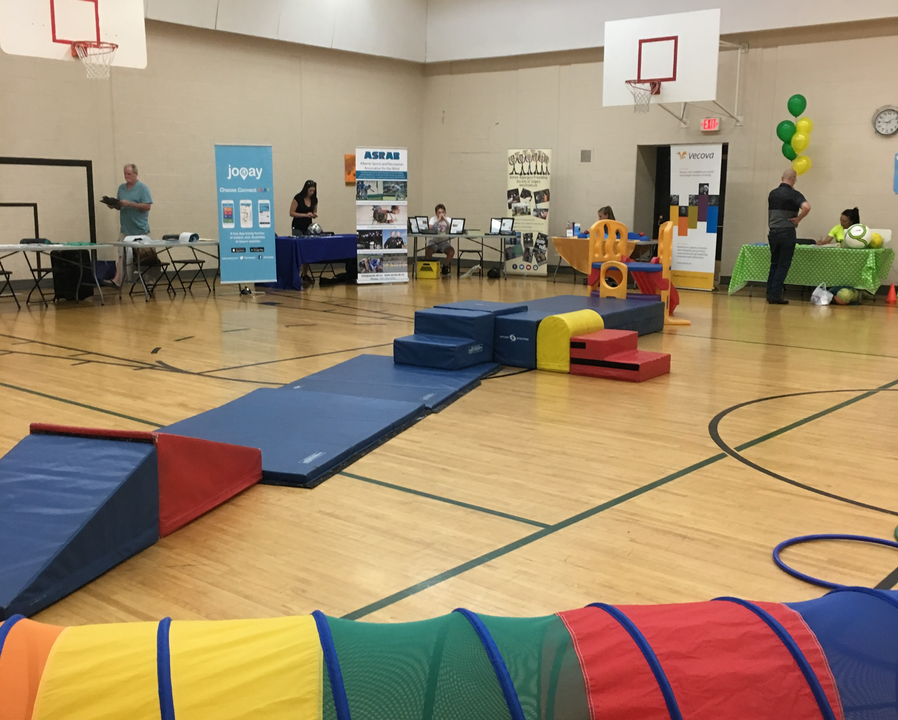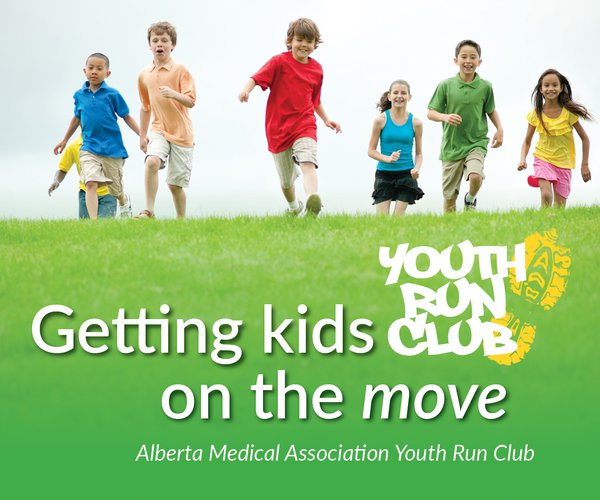There’s no questioning the negative consequences of inadequate physical activity levels in children, especially those with disabilities. For all that inactivity, there’s a big price to be paid physically, academically and socially.
That was the challenge that Dr. Sarah MacEachern, pediatric resident (R3) at the Alberta Children’s Hospital in Calgary, chose to tackle when she initiated her 2016-17 Emerging Leaders in Health Promotion grant project: Promoting physical activity for children with disabilities in Calgary.
Beginning during her undergraduate studies at Acadia University, Sarah has been a long-time volunteer with a special love for working with children with disabilities. It all started with a conversation she had with the frustrated mother of a child who had “aged out” of the Children’s Adapted Physical Activity (CAPA) program (started in 2011 through Mount Royal University by Sarah and Dr. David Legg). This conversation motivated Sarah to focus on helping children and youth with disabilities access physical activity.
“The literature shows that the average Canadian child does not get enough physical activity to meet Canadian guidelines,” says Sarah. “Children with disabilities have higher rates of obesity and lower rates of physical fitness compared to their peers, suggesting that they’re getting even less physical activity.”

Research and an app
Sarah’s response was two-fold. A Calgary-based team research project was put in place to identify barriers to physical activity for children with disabilities in Calgary and area. In 2017, the AMA and its ELiHP co-sponsors (CMA and its subsidiary Joule, as well as MD Financial Management) provided Sarah with an ELiHP grant to support her project aimed at removing the barriers that physically and intellectually disabled children and youth encounter as they and their parents search for suitable adapted physical activity programs and facilities.
Shortly after receiving her grant, Sarah partnered with Jooay, “a free Canadian online application that uses local resources and crowd-sourcing to help build a strong database of programs and facilities that are accessible for individuals with disabilities,” she explains. As part of her ELiHP project, Sarah identified strategies to promote and publicize the Jooay app to parents, caregivers, organizations and facilities in Calgary.
“I became the Alberta Ambassador for Jooay,” she says. With her media strategy and events plan, Sarah obtained good media coverage (radio, TV, print and online) and good attendance at the three promotional events, with attendance and social media engagement increasing with each event.
“The main Jooay Facebook page saw a three-fold increase in followers from Calgary between February and October 2017,” Sarah explains. “And most importantly, results of a survey we distributed at the events indicated that 100% of parents who attended the events downloaded the app and agreed that as a result of the event, they would be more likely to investigate physical activity programs and facilities for their child.”
Sarah was mentored in her ELiHP grant project by her research partners, Dr. Deborah Dewey and Dr. Jean-Francois Lemay, and she received assistance at events from her fellow resident physicians and many others. These included her parents, engineering student Sarah Khan, and associated organizations and friends who “helped spread the word about the app and the events.” Katie Hall of the Children’s Link and the local Calgary media were particularly helpful in spreading the word.
Staying connected with social media
Reflecting on the rewards of participating in an ELiHP project, Sarah comments, “I’ve learned a lot about health promotion this year and in particular, the importance of social media. Families and organizations are using it, and the medical profession needs to get more on-board and comfortable with this format in order to stay connected to their patients and undertake targeted health promotion work. Social media is a great way to reach a lot of people quickly and has tremendous power that I feel is being under-used in medicine.”
As she looks beyond the continuing growth and use of the Jooay app in Calgary and area by service recipients and providers, to the bigger goal, Sarah says, “Ultimately, this is about getting children with disabilities active and engaged in their community, leading to a more inclusive and healthier Calgary. That will take time and energy to achieve, but this grant has been an important starting point.”
Related link:
October 16, 2017 | ActiveforLife.com: New app helps kids with disabilities stay active
About the Emerging Leaders in Health Promotion grant program
The Emerging Leaders in Health Promotion (ELiHP) grant program provides funding to help medical students and resident physicians conceive and implement health promotion projects in support of the development of their CanMEDS/FM core competencies, particularly health advocacy.
ELiHP is jointly sponsored by the Alberta Medical Association, the Canadian Medical Association and its subsidiaryJoule, and MD Financial Management. Projects facilitate the growth of physician leadership and advocacy skills in a mentored environment while enhancing the well-being of the general Alberta population through education, advocacy or community service.
Banner photo: Dr. Sarah MacEachern, pediatric resident (R3) at the Alberta Children’s Hospital in Calgary.

